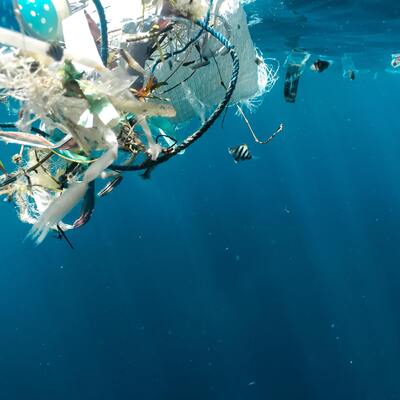Plastic Free Julyis a global movement, which helps millions of people be part of the solution to plastic pollution in order to have cleaner streets, oceans and communities.
With an estimated eight million tons of plastic entering our oceans every year, causing the deaths of more than one million seabirds every year, as well as more than 100,000 marine mammals (according to the UN agency UNESCO), any steps we can take as individuals, groups and businesses to reduce our plastic use are important.
Bearing this in mind, businesses should do what they can to step up to the plate in order to find a healthy solution to the widely publicised single-use plastic problem. Not only will it benefit the environment overall, but being having a conscious and active ESG (Environmental & Social Governance) plan is more important to employees and customers now, more than ever, and will increase brand loyalty.
So, without further ado, here are our top ways that your office can reduce its plastic count, all while helping the environment.
Cultivate good habits
Encourage employees to have reusable coffee cups, water bottles and lunch boxes, or wrap sandwiches in recyclable or reusable materials, rather than cling film. This could extend to them bringing in their own lunch full stop, rather than buying meal deals from supermarkets which are predominantly wrapped in plastic. In fact, in 2019, environmental charity Hubbubestimated that British workers’ takeaway and on-the-go lunch habits generating 10.7bn separate items of waste over a year.
You could also provide incentives, such as monthly prizes for the person who has gone above and beyond to reduce their plastic intake. This can then be positively shared across social media, demonstrating your organisation’s commitment to ESG.
Choose your office supplies wisely
Stationery tends to be heavily packaged in plastic and many items, including folders, document wallets, pens, and rulers are made mainly of plastic.
Bearing this in mind, take the time to ask suppliers whether it’s possible to obtain alternative, plastic-free products. Notebooks with cardboard covers, recycled and recyclable document wallets and wooden letter trays are just a few of the greener alternatives that are available.
It’s important to not give up too quickly, so stand your ground and if your current supplier isn’t able to assist, then find a supplier who can.
Provide water coolers
Having access to fresh drinking water throughout the day helps people to be productive. A way to encourage staff to use fewer single-use plastic water bottles is to invest in coolers in the office space and request that people bring reusable bottles from home or take glasses from the office kitchen to refill as and when required.
Drop helpful hints
It’s all too easy for employees to forget to drop their rubbish in the incorrect recycling bin or to bring in their own reusable shopping bags should they wish to pop out during their lunch break.
To give everyone a gentle reminder, try downloading and printing off some posters to create visible signs which remind others to do their bit for the environment in numerous different ways. This should help to positively reinforce the building of those all-important good habits so that they become second nature.
Upgrade your hot drinks facilities
Switch plastic cups and lids to paper versions or even ceramic mugs to make your tea breaks more eco-friendly. For extra points, swap your plastic milk cartons for glass milk bottles and try supporting a local delivery service, rather than a huge corporation.
Recycle efficiently
Many workplaces have recycling bins designated for paper waste but fewer have caught on and have them specifically for plastic. If your local authority accepts plastic at your nearest recycling unit, consider organising a rota of volunteers to take a bag of plastics to be recycled weekly or fortnightly.
Find out more about recycling collections in your area by visiting the government website.
If you would like to discuss this or any of the topics covered in our articles, please get in touch – info@merje.com.







